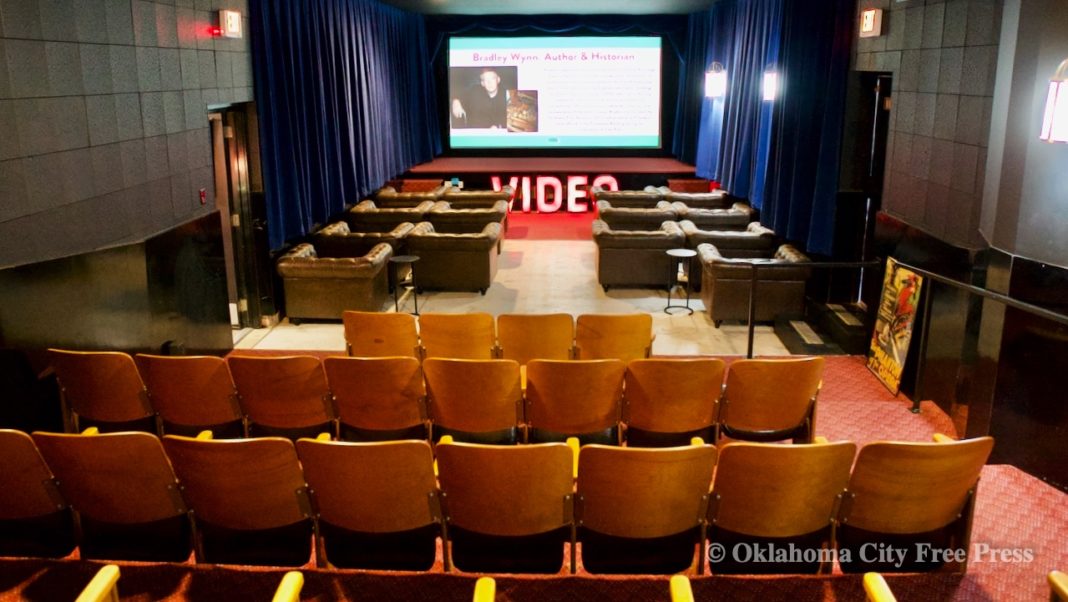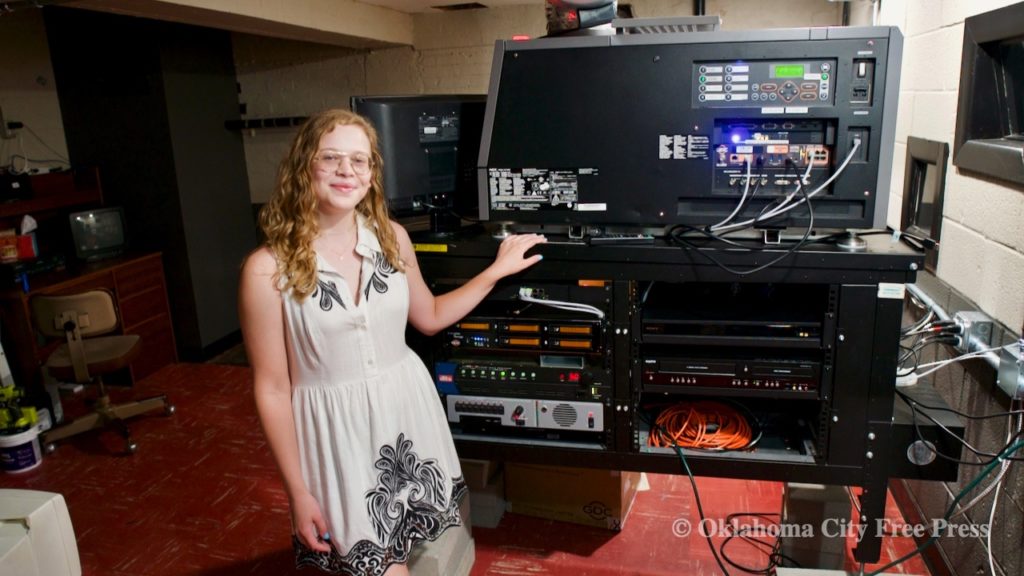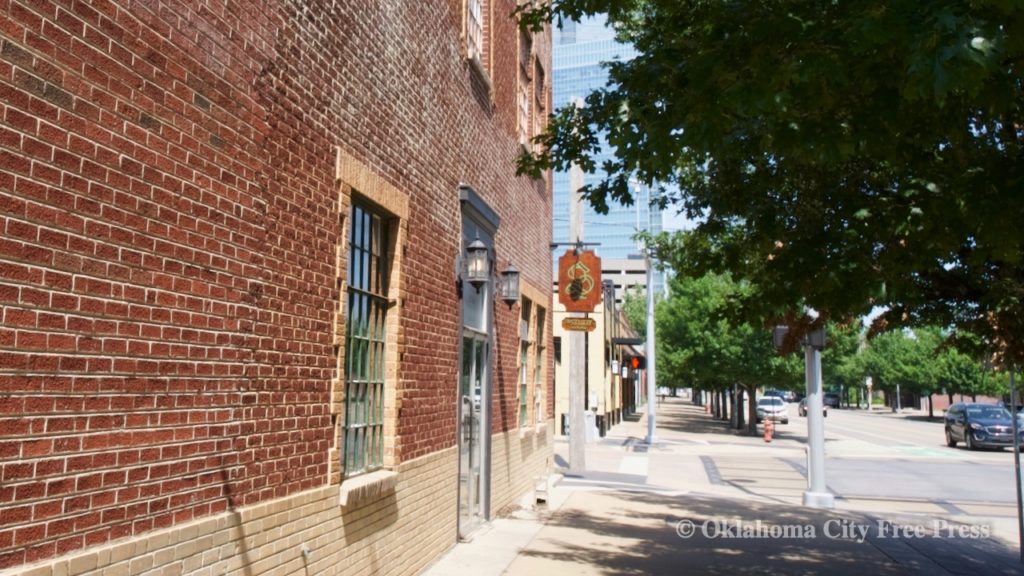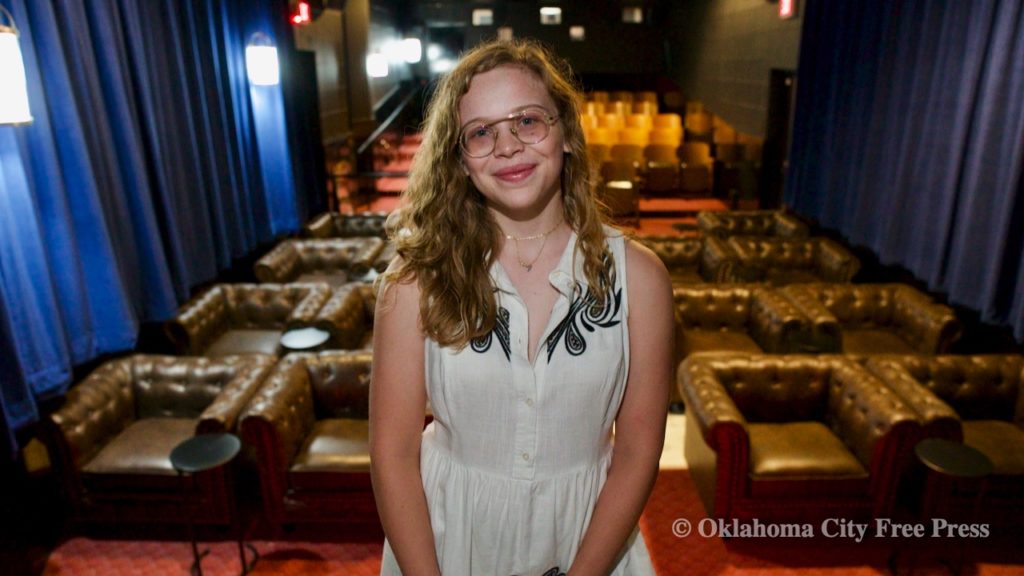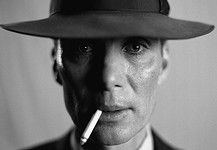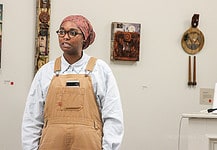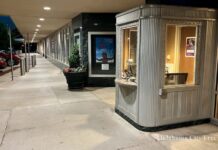Last Updated on June 20, 2021, 3:03 PM | Published: June 20, 2021
OKLAHOMA CITY (Free Press) — Friday, Rodeo Cinema held the grand opening for its second theater at The Paramount building in historic Film Row near downtown Oklahoma City.
Served with free popcorn, free soda, and free coffee from an up-and-coming café upstairs, visitors had the opportunity to watch history in motion as the local nonprofit Rodeo Cinema cut the ribbon on the refurbished theater.

The Arts
with Devraat Awasthi
Preservation and future use
The theater, now owned and operated by Rodeo Cinema, was a functional part of industrial Film Row in decades past.
Oklahoma City’s Paramount Studio screening room was among many on Film Row. They were used to allow theater representatives to preview films each studio had as they considered which to rent.
The days of needing local buildings to house large film reels are gone.
But, the asset of an intimate theater of 60 seats this close to downtown with the panache of its historic significance maintains the value of the original space as the rest of the building is being repurposed for many different uses.
The historical record of Film Row is the key reason for Rodeo Cinema’s lease agreement, which was reduced for the first two years in exchange for the renovations Rodeo Cinema did.
As Julia Holeman, Executive Director of Rodeo Cinema, explained, “We were concerned that if we didn’t acquire it and bring it back to life, that somebody would just turn it into something else, and they wouldn’t show films here anymore, and this is the last remaining screening room like this in the country.”
It is only in hindsight that people appreciate the preservation of important spaces, and Rodeo Cinema’s custody of the Paramount screening room promises to be a service to all of Oklahoma City’s residents.
Significance of Film Row
According to Bradley Wynn, an Oklahoma film historian and author of Oklahoma City: Film Row, Oklahoma City was home to one of 37 “film exchanges.”. At these film exchanges, studios rented film to theaters. In Oklahoma City, every major film studio was represented, except for Walt Disney who had not yet launched.
These studios were the first fire-proof buildings in Oklahoma City, Mr. Wynn explained.
Film reels contained significant quantities of nitrates, the same substance that reportedly blew up half of Beirut, Lebanon, not more than a year ago. To avoid such a cataclysm, the film exchange was located on what was then the outskirts of town.
Film row quickly took shape as studios were eager to establish distribution points to the commercial hub that was Oklahoma City, where trains were frequent and the oil boom had not yet ended and movie theaters started multiplying in every town, especially Oklahoma City.
Today, the former Paramount Studio’s screening room is the last operating film exchange theater in the country.
Film Row, says Mr. Wynn, was later nicknamed “skid row,” a blighted and abandoned street. “People would drive through with blinders on, because they had to get to the highway, right? And the idea was if I don’t look, it doesn’t exist. And my fear, when I came down here, was one day those blinders would be removed, and it wouldn’t [exist].”
Much of Film Row’s historic buildings were lost to urban renewal efforts that were focused on tearing down the old and replacing with new buildings. The Paramount was saved only by the depletion of funds for demolition in the late 70’s.
Next chapter
Oklahoma’s next chapter of history is sure to be dominated by film intrigues, with major film studios taking off in Oklahoma.
Prairie Surf Media, founded by Rachel Cannon and Matt Payne, both veterans of Hollywood, has already attracted big names. Martin Scorsese is currently filming a $200 million production in Pawhuska, Oklahoma, and Taika Waititi is scheduled to film the first season of his upcoming project, Reservation Dogs, out of Prairie Surf.
And the agreement between Prairie Surf and the City of Oklahoma City to repurpose the former Cox Convention Center downtown into five large, clear-span studios by Prairie Surf has put Oklahoma City on the map to become a major player in film production.
Rodeo Cinema’s new location, therefore, is the right place at the right time.
Plans
Rodeo Cinema has big plans for their new location, reaching out to the tribal nations and the Jewish Federation to highlight important films by and for these communities.
“This space is open to show films, and we want people to be able to enjoy it and to see the hard work we’ve put into making it this amazing space it is now,” said Holeman, whose energy in the organization is propelling Rodeo Cinema into its next chapter.
Holeman is a recent graduate of Bryn Mawr, another young person joining the workforce amid a pandemic.
Her position at Rodeo Cinema highlights the work they are committed to. Even as mainstream films make themselves at home in Oklahoma City, places like Rodeo Cinema will remain committed to the unique insights of Oklahoma film and Oklahoma history. Having recently been one of the few in-person venues for deadCenter Film Festival, Rodeo Cinema is likely to be a haven of emerging talent in a city soon to be gilded by the silver screen.
Devraat Awasthi is an art reporter for Free Press, a full-time law student at the University of Oklahoma, and is interested in pop culture’s role in public communities.
